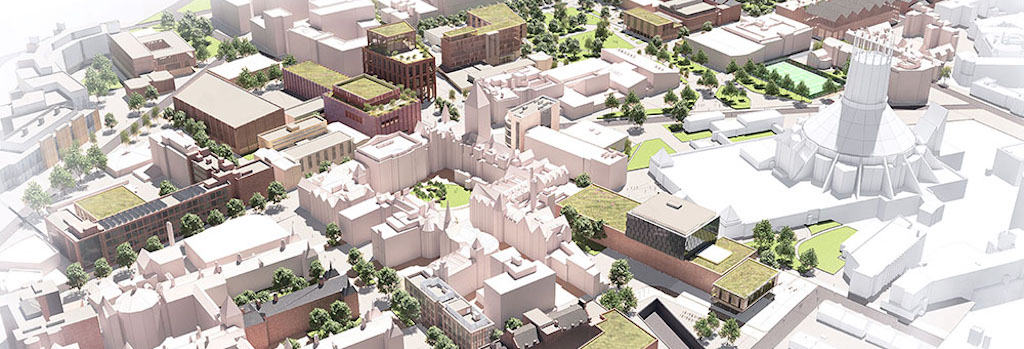
Reflections on the Liverpool City Region conference
We very much enjoyed being part of the BEN conference last week, which asked how can we develop a greener, healthier and smarter Liverpool City Region.
Our very own P4 Director Rhian Thomas kicked off the event, speaking about our involvement with the University of Liverpool and its campus masterplan that, in light of Covid-19, intends to provide plenty of collaborative open spaces to ensure student wellbeing.
The panel discussed MP Michael Gove’s new appointment and his bold statement that levelling up is the ‘defining mission of this government’. If his upgraded job title (Secretary of State for Levelling Up, Housing and Communities) is anything to go by, perhaps he means business. With all the work being done and the potential that we see in the region, we sincerely hope that the government’s big statements translate into tangible change to deal with inequalities in the region.
Rhian touched on how we’re seeing the value of public realm come to the fore in schemes we’re working on, in particular the impact they can have on wellbeing. New emerging spatial plans in the city region must embed wellbeing and inclusivity into policies, to ensure that the ambitions of the ‘levelling up’ agenda can be realised.
That’s why the announcement of £45m regeneration funding towards the new Everton stadium by the Combined Authority is an encouraging sign of things to come. We’re struck by the fact that this funding comes with the caveat that investment must tackle inequality, deliver employment and training opportunities for the community and foster inclusivity. Funding stipulations like this are key to driving inclusivity forward.
Rhian said, ‘It’s not enough to pay lip service to inclusivity anymore. Covid-19 has shone a light into areas where we’ve let ourselves down in the past. Now we need to ensure that our built environment works for everyone. Society is asking for change.’
It’s a subtle shift that we have observed at P4: whilst there are still proposals that provoke public objections outright, we are also now hearing a growing voice demanding that developments bring benefits to the whole community. Is this the end of NIMBYism?
Planning can often be seen as a barrier to development, but ambitious spatial planning and responsible developments that deal with inequalities head on can make a real difference. Those of us working in the sector need to keep the momentum going and grasp opportunities for growth – and they are there!
If you missed it and would like to hear the discussion in full you can catch up by watching a recording of the event.